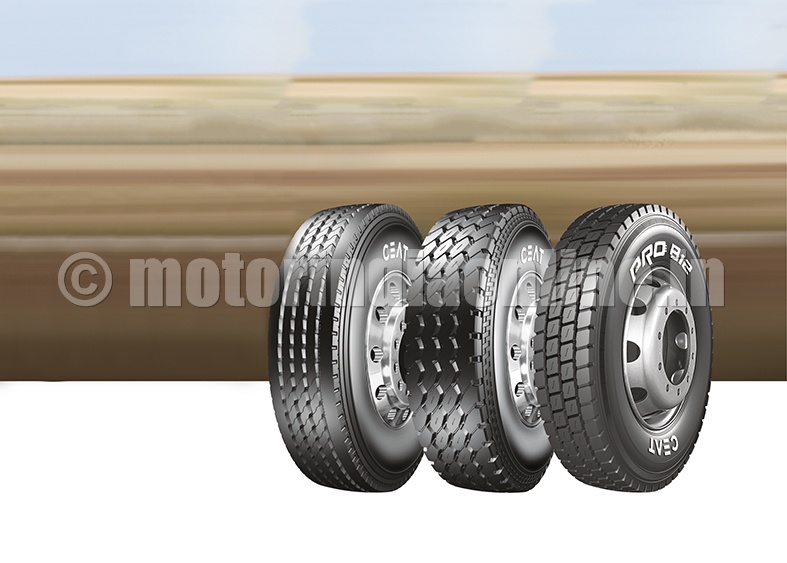The Indian automobile industry faced a fall in demand during 2014-15, particularly in the commercial and farm segments. However demand for passenger cars and two-wheelers registered a positive growth. This had a corresponding impact on the domestic tyre industry as well, with the respective tyre categories matching the demand pattern of the corresponding automobile categories.

Contraction of demand was seen in the export market also on account of the growing demand for radial tyres supplied by other countries and the corresponding shrinkage in demand for bias tyres. Further the prices realised from the export market also registered continued reduction, due to competition from low-cost Chinese tyres. A slowdown in demand from China, the world’s biggest consumer of rubber, along with increased supply in markets such as Thailand, has kept international rubber prices at a tight leash during the year.
CEAT, flagship of the RPG Group, is a leading manufacturer of automobile tyres in India. The company continued its focus on development and launched a number of new products in 2014-15, which included tubeless tyres for 2-wheelers, new size introduction for compact SUVs and off-road biking tyres. These products have contributed to 27 per cent of the company turnover.
The company has been focusing on expansion of its distribution and dealer network to ensure enhanced and easy availability of its products. Its network has 3500+ dealers, with 300+ CEAT franchisees and over 250 distributors.
The CEAT Shoppe network has about nearing 200 outlets. The company has also launched the multi-brand outlet and shop-in-shop concepts aiming at improving product penetration in the replacement market.

“At CEAT, we continue with our strategic initiatives focussing on market share expansion in profitable segments and creation of a strong brand both locally and globally. We have also embarked on an expansion in our capacities which should be completed during FY 2015-16. Our emphasis has been on building tyres which are not just world-class but also the safest on the road and the most environment-friendly. We are also working on leveraging the benefits of digital technology, particularly in manufacturing supply chain and other key business processes. The volatility in commodity prices, especially rubber, remains a challenge”, said Mr. Harsh Vardhan Goenka, Chairman and Non-Executive Director.
Superior grip and the most outstanding of safety features have enabled CEAT to continuously expand its presence in the domestic market with its bias tyres as well as high-performance radial tyres for a range of vehicles. The company has a rapidly growing market share in various passenger tyre categories and has established decades-long presence in all categories of commercial vehicle tyres.
FY14-15 performance
On a standalone basis CEAT recorded a total income of Rs. 5,59,166.46 lakhs in FY14-15 with a growth of 4.42 per cent over Rs. 5,35,481.05 lakhs in the previous fiscal. The company recorded a net profit of Rs. 29,897.39 lakhs, reflecting a growth of 17.81 per cent compared to Rs. 25,378.22 lakhs in 2013-14. On a consolidated basis the company recorded net revenue from operations of Rs. 5,80,238.33 lakhs with a growth of 4.47 per cent over Rs. 5,55,397.86 lakhs the last fiscal. It recorded a net profit of Rs. 31,717.98 lakhs, reflecting a growth with Rs. 27,123.50 lakhs the previous year.
Development programs with OEMs resulted in product approvals from many leading OEMs, including Honda Motorcycles and Scooters India and Yamaha in two-wheeler tyres, Renault in car radial tyres and Tata Motors in MUV tyres, meeting the stringent rolling resistance and grip targets. With these approvals, the company has augmented its OEM strength as it already has tie-ups with leading passenger and commercial vehicle manufacturers like Tata Motors, Mahindra & Mahindra, Ashok Leyland, Volvo-Eicher, Maruti Suzuki, Hyundai and Force Motors, as well as two-wheeler manufacturers like Bajaj Auto, Hero MotoCorp, Royal Enfield and Suzuki. Similarly in the farm equipment segment, CEAT partners with Mahindra & Mahindra, International Tractors, John Deere, TAFE and Escorts.
The company has undertaken a capacity expansion of 11,000 tyres a day at its plant at Halol in Gujarat at an estimated outlay of Rs. 65,000 lakhs to produce passenger radial tyres. Further, it proposes to set up a greenfield project with an initial capacity of 40,500 tyres a day near Nagpur at a capital outlay of Rs. 42,000 lakhs to manufacture two- and three-wheeler tyres. The Halol and Nagpur projects are expected to commence commercial production in the first half of the current and next fiscal year respectively.
R&D focus
Established in 2011, CEAT’s modern state-of-the-art R&D facility at the Halol plant has some of the industry-best features that include capability for virtual performance prediction, advanced indoor and vehicle dynamics testing of tyres, 3-dimensional modelling and prototyping, structural and noise simulations, reverse engineering, nanotechnology and advanced materials development capabilities, etc.
The R&D team introduced 102 new products and variants in FY 2014-15, building on CEAT’s position as a premium innovative player in the OEM market for TW, PC tyres and CV tyres. The company also introduced additional products in its premium tyre range. Plans are on the anvil to expand the export business by leveraging the strong R&D capabilities to introduce region-specific targeted products.
CEAT’s basket of innovative and superior products stands testimony to its commitment to the safety and control of vehicles on the road as it surges forward in its progressive journey.
Truck and bus tyres
CEAT offers a range of tyres for truck and bus customers depending on the specific requirements – Mile XL Rib Pro Tyres with longer life, better retreadability and for high load operations, Mile XL Pro Tyres for customers looking for high mileage, and high speed, 295/80 R 22.5 Pro R10 tyres for customers seeking superior mileage, good retreadability and high fuel efficiency.
The company conducted large-scale fleet meets in association with OEM dealers to build greater equity for its TBR range during the year. It also developed an app-based customer education module for the truck and bus segment, a tool for pitching the right product to the customer, as per the application. For truck and bus tyre customers, the company also launched a revamped driver-training programme, a comprehensive guide to help truck drivers optimise on tyre mileage, fuel efficiency and hence enhance their earnings.
Expanding global footprint
CEAT exports its tyres to global markets spanning more than 100 countries. From the Middle East to the Far East 1 (Indonesia and Singapore) and Far East 2 (SE Asia and Pacific) from West to East Africa, from Europe to South and North America, and through Nepal, CEAT’s global footprint is an endorsement of its expanding reach. Establishment of liaison offices in Indonesia and the Middle East has further helped the company augment its international presence and improve sales by establishing local connect with the dealers.
During the year, a CEAT Shoppe was set up in the UAE to cater to the its expanding market in the Gulf region. With improved visibility and customer addition this has reaped rich benefits for the company, promising greater traction in business, going forward.
CEAT is a major exporter of tyres for trucks, off-the-road (OTR) vehicles and LCVs, with many of them exclusively developed for overseas markets. The specially designed tyres for export markets include those with excellent mileage, ride comfort and low noise as for the Dubai taxi market, as well as the low noise ones that surpass the stringent requirements under European regulations.
Market outlook
The Indian tyre industry is expected to register higher growth during the current fiscal considering the optimistic macro-economic conditions and the projected growth of the automobile industry. Passenger car, motorcycle and truck & bus tyres are expected to register a growth of 7 to 9 per cent, while scooter and small commercial vehicle tyres are projected to register double-digit growth in the coming year. Demand for tractor tyres is dependent on the season and is not expected to show any significant growth in the coming year.
